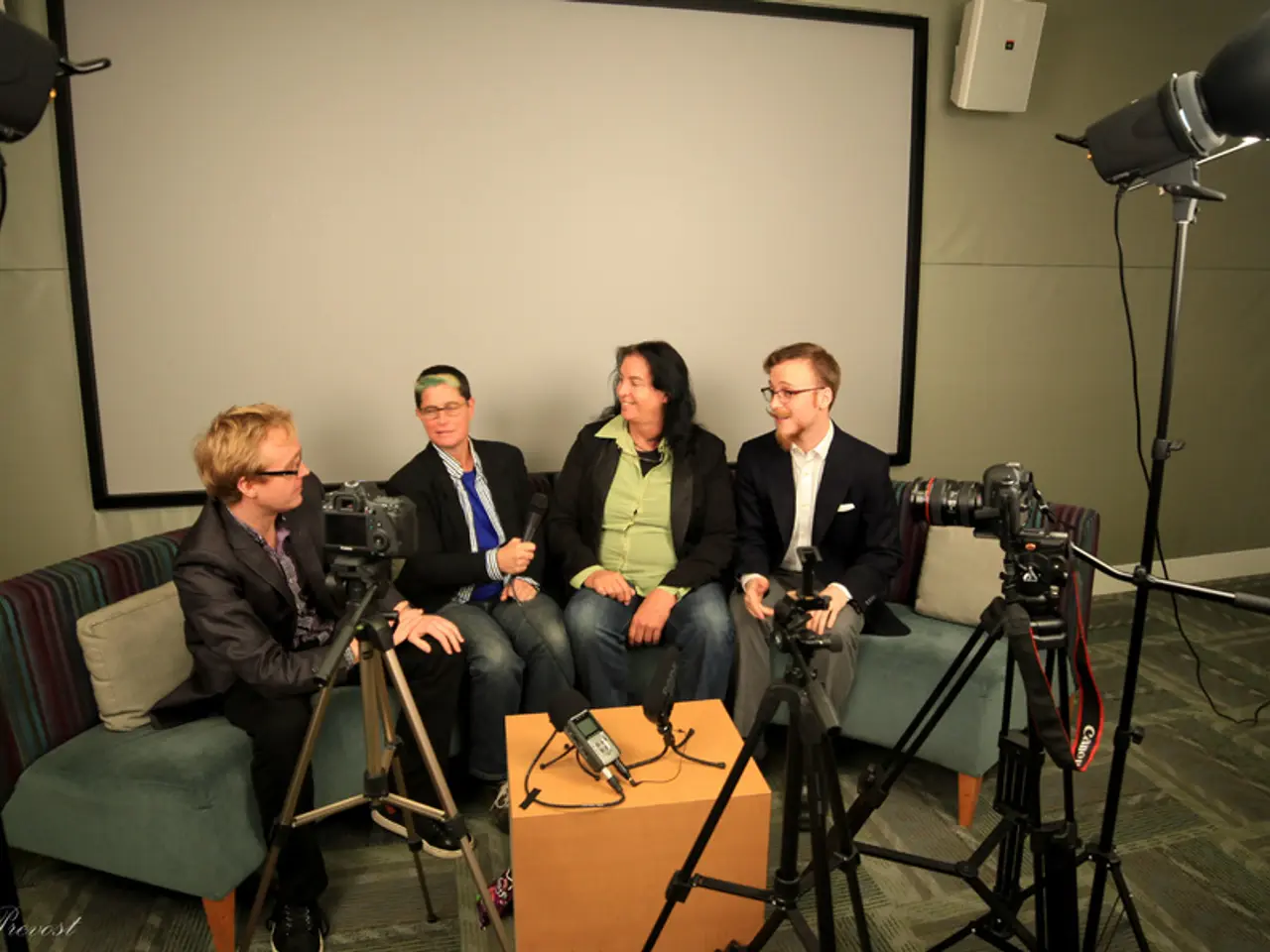Interview Inquiries in UPSC Examination: Categorization of Inquiries
The Union Public Services Commission (UPSC) Civil Services Examinations (CSE) in India is a prestigious recruitment process that consists of three stages: Preliminary Examination, Mains, and Interview. The final stage, the Interview, is renowned for its broad range of topics and challenging questions, designed to assess a candidate's personality and suitability for public service.
To excel in the UPSC CSE Interview, it is essential to start early and be comprehensive in one's preparation. Aspiring candidates should focus on strengthening their knowledge and personality traits simultaneously, covering areas such as their Optional Subject, educational background, DAF (Detailed Application Form) content, residence history, and current affairs.
Factual Questions are one of the types of questions asked in a UPSC CSE Interview. To handle these questions effectively, candidates should build a strong factual and conceptual knowledge base. Revising NCERTs and standard books on history, geography, polity, economy, environment, and current affairs is crucial. Answer concisely, avoiding unnecessary details, and practice clarity and precision to make a good impression.
Opinion-Based Questions are another common type of question in the UPSC CSE Interview. To respond effectively, structure your answers logically, presenting pros and cons before arriving at a balanced conclusion. Stay updated on current affairs and government policies to provide informed opinions linked to governance and social equity. Maintain a calm and confident tone, using language free of jargon to enhance clarity and accessibility.
Situational Questions are posed to candidates, placing them in hypothetical situations and asking for their responses. To handle these questions, use a case study approach, explaining how you would handle real-world scenarios with integrity, diplomacy, and problem-solving abilities. Ground your answers in policy mechanics and local impacts, blending theory with practical governance considerations.
Personal Questions are asked in the UPSC interview to learn about a candidate's personality. Be authentic and sincere; honesty is highly valued. Talk about your hobbies, interests, and personal experiences with depth and genuineness. Avoid pretence; if unsure, admit it politely rather than bluffing.
Presence of Mind Questions are the final category of questions in an UPSC interview, designed to assess a candidate's ability to remain calm, think logically, and demonstrate common sense in unexpected or challenging situations. If you do not know an answer, openly admit it and request permission to offer a speculative response, demonstrating honesty and intellectual humility. Maintain steady eye contact, an approachable smile, and positive body language to convey confidence and composure.
Mock interviews help reduce anxiety and improve your ability to think on your feet. Prioritize being yourself and avoiding rehearsed or mechanical answers; authenticity combined with authority makes a strong impression. Engage in mock interviews to gain practical experience and identify weaknesses.
Remember, the UPSC interview panel assesses your approach to questions and your personality, not just factual correctness. By combining strong factual knowledge with a balanced, honest, and calm demeanor, while preparing specifically for situational and personal dimensions, aspirants can effectively tackle the diverse question types in the UPSC CSE Interview.
Examples of Factual Questions include "What is the GDP of India?" and "What is the Unemployment Rate?" Presence of Mind Questions can be both simple and tricky, like the example where a candidate was asked to state his roll number and then sum it up. The UPSC interview assesses a candidate's overall personality.
To excel in the UPSC CSE Interview, it's important to build a strong foundation in facts by revising topics like India's GDP and unemployment rate. This knowledge will help one respond effectively to factual questions.
In addition to a strong factual base, candidates should also focus on self-development and career development. This includes being able to express one's opinions logically, staying informed on current affairs and government policies, and demonstrating the ability to handle real-world situations with integrity and diplomacy.




